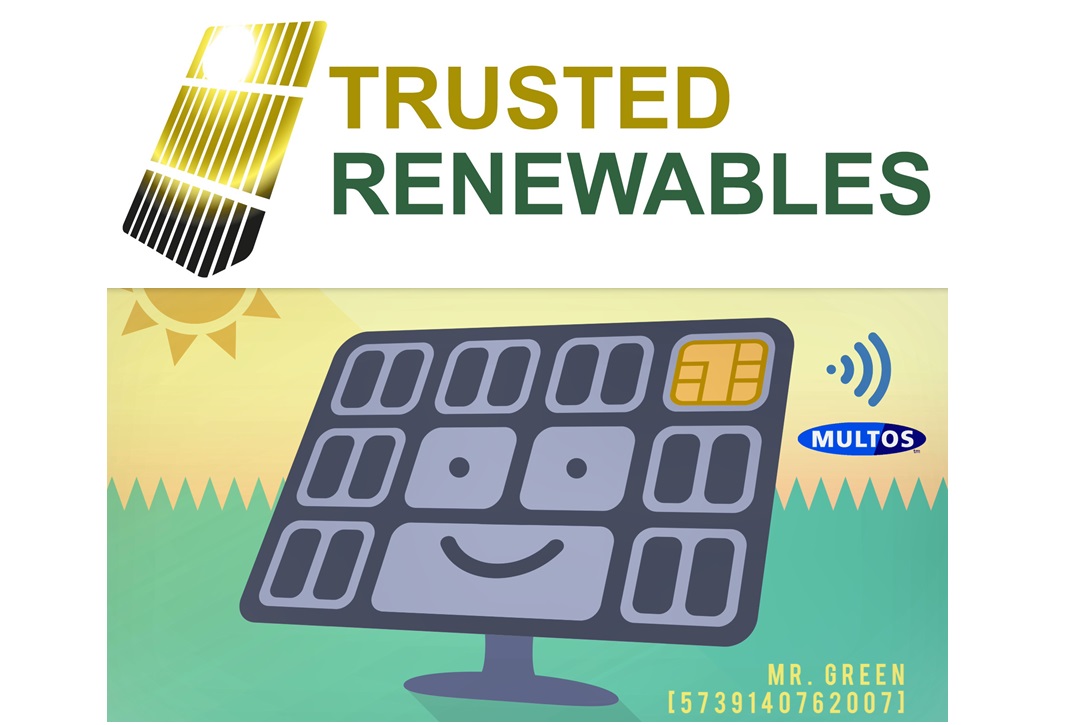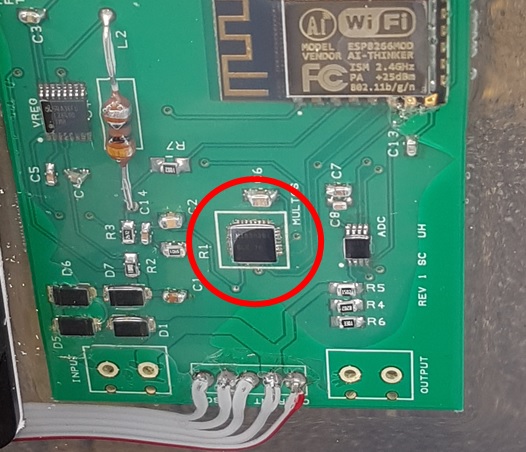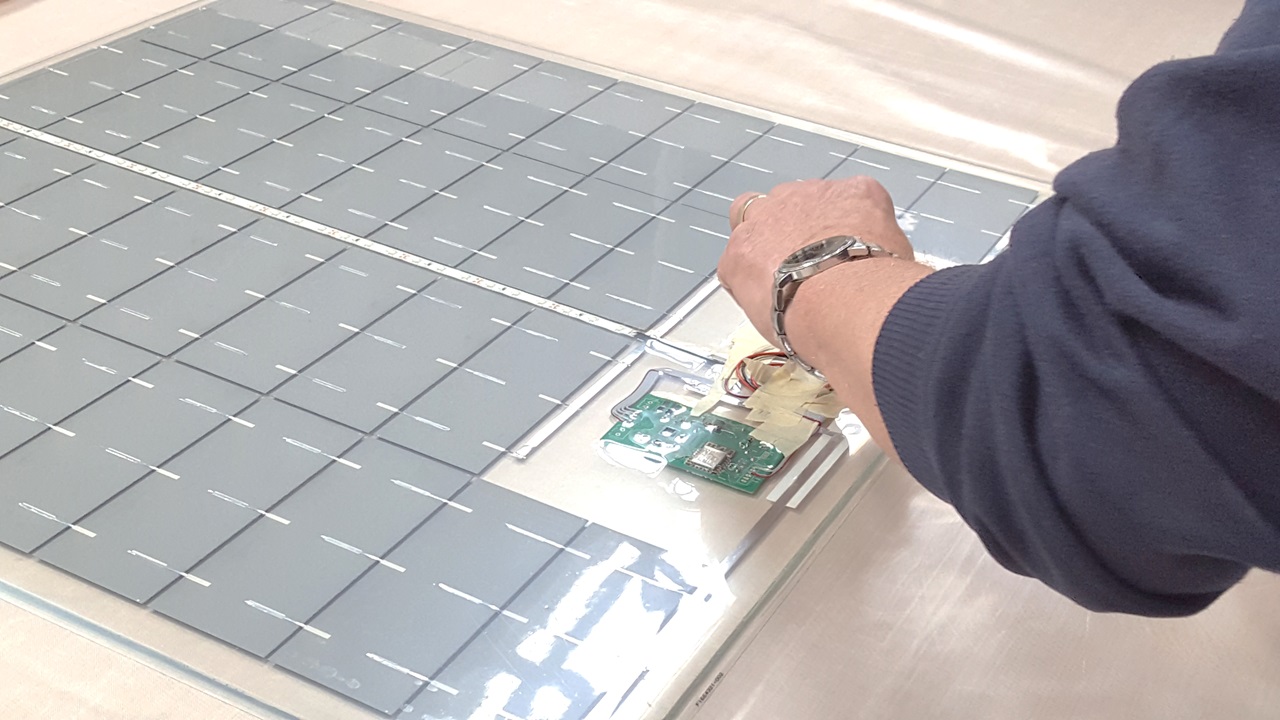
Trusted Renewables MULTOS Smart Solar Panel
Trusted Renewables provides focussed thought leadership to exploit and commercialise innovation in ICT for renewable energy, carbon reduction and smart metering. Based in the East of England, they are developing a secure, trusted architecture based upon best practice for e-commerce, applicable to the renewable energy and carbon reduction fields.
Solar power is a specific growing sector of the smart energy market and is part of a new smart grid ecosystem based on the Internet of Things (IoT). However,
researchers have started to uncover worrying security flaws within existing renewable systems which hackers can exploit for fraudulent or disruptive purposes.
Trusted Renewables have invented the smart solar panel. This contains an embedded smart chip and M2M communications circuits which link them to an IoT smart energy ecosystem. Secure applications running on each chip allow energy trading using “smart contracts”, and validate renewable energy payments with “certificates of origin”. Individual panels can be grouped into a “solar garden” where investors receive tradable rights to be rewarded for the renewable energy produced by “their” panels. Future electricity grids will contain many of these smart edge-of-network IoT objects running new, well-supported smart applications.
Trusted Solar Harvesting
Securing the Smart Energy Ecosystem
“2 billion solar panels could be in service by 2020, rising to nearly 20 billion by 2050”
MULTOS Security at the core
But why was MULTOS technology chosen?
The smart chip resists cyber-attacks and provides the IoT “trust anchor” needed to protect the solar panel devices and services.
MULTOS technology reduces the design effort for smart secure device projects requiring robust hardware root-of-trust protection, critical for many IoT solutions and businesses.
Its flexibility allows a high-security microcontroller running the renowned MULTOS operating system to be designed in as a supporting secure co-processor.
Key features of the MULTOS technology which can be leveraged for smart secure devices include protecting the device runtime, ensuring the identity of endpoints, securing critical data, simplifying the provisioning process, with enhanced flexibility and life cycle management, all while supporting low power modes of operation.
So a great example of how MULTOS can provide security and flexibility for smart devices.


